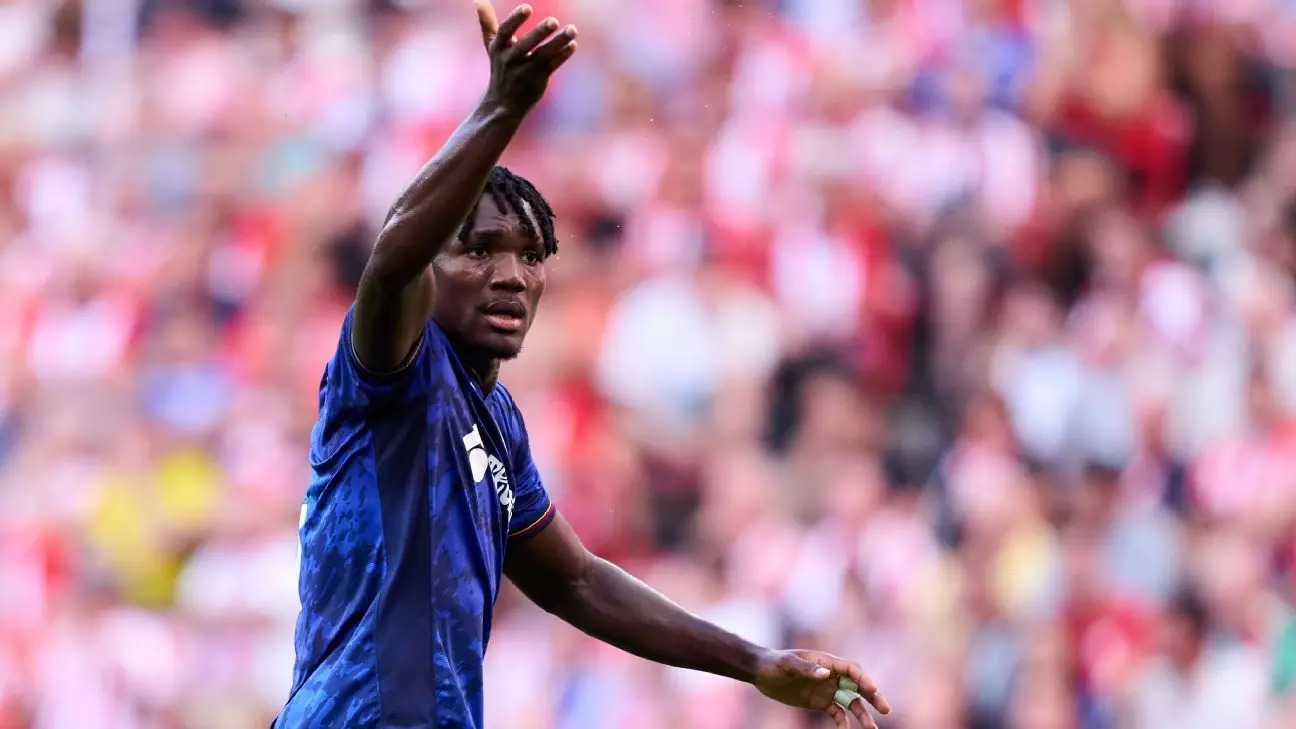Nigerian midfielder Christantus Uche, currently playing for Getafe, has joined a growing chorus of voices lamenting the treatment of players, particularly those from minority backgrounds, within LaLiga. As Uche adapts to his new environment, transitioning from a lower-league club in Ceuta to Spain’s top division, his experiences highlight critical issues surrounding player safety, equality, and the influence of officials. In his first year, the 21-year-old has not only had to contend with the tactical demands of LaLiga but has also faced a disturbing pattern of harsh challenges from opponents and unsanctioned verbal abuse from fans.
The vigorous style of play inherent to Spanish football can be both exciting and physically demanding. However, Uche’s allegations that referees have been lax in protecting him from aggressive tactics raise alarm bells about referee authority and consistency. This discussion echoes broader conflicts within the sport—whether the officials are adequately equipped to respond to these challenges, especially for players from diverse backgrounds.
In an interview with ESPN, Uche expressed visibly his frustration with the officiating he has experienced since entering LaLiga. He articulated a stark contrast in how fouls are penalized, suggesting that his experiences are not being treated with the same seriousness as those of his counterparts. Uche noted, “I will fall down, they will kick me… and the referee will not do anything.” This statement encapsulates his sense of powerlessness, as he feels exposed to unfair treatment while the referee overlooks evident violations of conduct.
This perception of inequity resonates with other players and pundits alike, igniting a conversation about the standards that referees must uphold. The fact that Uche’s grievances are echoed by others raises questions about not just individual experiences but also systemic issues within Spain’s football culture. Effective communication and awareness from officials, combined with increased accountability, could ultimately create a safer and more equitable environment for all players.
Uche’s experiences extend beyond the pitch as he has also spoken out against the racist taunts he has faced from fans. He described how certain individuals have hurled degrading insults, reinforcing a troubling pattern within the broader footballing culture in Spain. His poignant remark, “Racism is not good, it has to stop. Everybody is the same, everybody is equal,” encapsulates the sentiments of many athletes who frequently contend with such issues.
The dark shadow of racism in LaLiga is not a new topic. Brazilian star Vinícius Júnior has been vocal about the discrimination he’s faced during matches. His assertion that if things do not improve, Spain might lose its right to host future international competitions serves as a stark warning that the issue extends beyond individual teams or leagues and may affect the country’s global standing in sports.
Despite the challenges posed by discriminatory incidents and seemingly inconsistent refereeing, Uche remains optimistic about his position in LaLiga. He maintains a strong desire to showcase his skills at the highest level of Spanish football, stating, “I feel great for the opportunity to play at this level.” This attitude reflects the resilience of many players who choose to rise above adversity and strive for success in their careers.
Rising stars like Uche not only enrich the competitive landscape of LaLiga but also bring diverse perspectives that can help drive change within the sport. Their experiences can serve as catalysts for conversations aimed at embracing inclusivity and challenging the status quo within football.
As stakeholders in the sport, both players and fans have roles to play in addressing issues of racism and violence on the field. Awareness and advocacy are essential, and conversations sparked by players like Uche can inspire action beyond the pitch. Support from fellow athletes, clubs, and organizations is crucial in implementing initiatives that promote equality and respect, creating an atmosphere conducive to all players, regardless of their background.
The narratives emerging from players like Christantus Uche should be amplified to ensure that LaLiga evolves into a more inclusive and equitable institution. A concerted effort from referees, clubs, and fans is vital in eradicating racism and protecting players, as the beautiful game must reflect a culture of respect, unity, and fairness at its core.

Leave a Reply